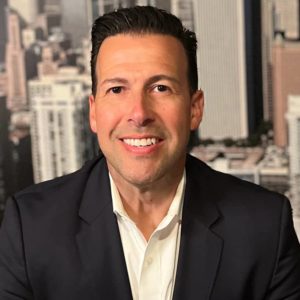What does it take to transform?
14th February 2023 | Michael Quinlan
Tackling obstacles to transformational leadership in corporations.

What does it mean to transform and how will you know when it is time?
It is likely that we have seen, heard, or felt transformation at some point in our lives. If we were to go around the room and provide descriptions, there is a good chance our definitions will be different. Before we begin, I feel it is important to illustrate the type of transformation that is the target of this research.
How I experienced transformation
It was about 10:30pm on 29 December 2015. I lost track of time how long I had been staring at the wall. There was nothing special about it. In fact, it was a plain old wall, no pictures, just blank. Ironically, that was exactly how I was feeling when I found out we were not going to get the deal.
This is the outcome a salesperson never wants to hear. If you are in the game long enough, it is unavoidable. It is natural to be consumed with anxiety and embarrassment if a deal did not come in. Rather, on that evening, I felt something unusual. I envisioned what it would have been like if I did get the deal… and I was paralyzed. I had this overwhelming feeling of loneliness. I had come to the realisation that I had no one to share it with. I had worked so hard for so long, I had isolated myself from my wife, my kids, my extended family, and friends.
I did not know it at that time, but the staring contest I had with the wall was the moment I so desperately needed. I humbly turned to the people in my life who had reached out to me many times before. Thankfully, they were still there for me and recommended a few executive coaches.
I felt a particular connection with a coach who has familiar skills that catapulted her career success. Ironically, these skills acted as barriers to achieving the next level of success. Her work-ethic, time management, and high activity could not be done any harder or better. In fact, it was exhausting her just to stay afloat. She knew she wanted more out of life but also knew her current strategy needed to change.
Her story resonated with me and shortly thereafter, we started working together. We spent many weeks peeling back the layers that I had accumulated over time and examined the thoughts and beliefs that were living rent free in my mind. We took time and determined which values and beliefs best represented who I was and wanted to be. And then, I started thinking, feeling, and acting in a manner that was aligned with my beliefs and values.
And what happened next was unsurprising: my achievements at work and my personal life were better than before I started with my executive coach. The best part of it: I was not celebrating alone. The people I abandoned before were with me now. I trusted my executive coach. I did the hard work. And I came out on the other side a different person. I am incredibly grateful for the transformation I have experienced as it continues to help me personally and professionally.
How we experienced transformation as leaders
On 2 April 2019, I was in the middle of clearing out my inbox when I saw an email describing the SAP Master’s Program. Thankfully, I did not hit the delete button. I continued reading and learned that this was a master’s programme specifically designed for sales leadership. That description alone was appealing!
For many reasons, this programme felt like a good fit for me; so much that I may have skipped getting the green light from my wife before emailing the application in. Oops… big marital lesson learned! One of the reasons I felt so strongly is I had been a sales leader for more than a year and still felt unsure how to lead. I imitated the things I liked from previous managers and left others behind. I got by with this hand-me-down style of management for as long as I could.
I knew I reached the limit when I started doubting myself. What value could I provide to those team members who know how to do the job? Why are some team members not following through on the instructions I provided? I needed guidance.
My fellow students felt the same as I did. Little did they know, the connection I felt with them gave me the courage to step forward. Despite the fear of the unknown, we trusted the programme and acquired skills and confidence to motivate and lead our people to levels we did not think were possible. We found ways to overcome these challenges because we were at peace with letting go of our previous behaviour. It was clear that what we were experiencing had transformed us and there was no reason for going backwards. Miraculously, we found time in our busy lives to practice it…and we enjoyed it. The impact my fellow students had been feeling had also been shared by those who have completed the SAP Master’s Program in previous years. It was at this point that I had this overwhelming feeling that I needed to find a way to scale this programme to more people at SAP.
What can be gained by more transformational leadership?
As much as I would love to find a way for this programme to scale, I felt it was my duty as an action researcher to serve the “greater we” and explore the obstacles to transformational leadership. In this paper, you will hear a story about a middle manager’s enthusiasm, preparation, and journey to uncover the obstacles to transformational leadership in corporations.
As middle managers, we sit at the intersection of the executives who have power and the employees who can create momentum. However, corporations are collections of people scattered across multiple departments with many hierarchies. While the organisation may appear to be united in reaching its ultimate objective, behaviour appears to be independent and oppositional at times. For these reasons, and many others I will discuss later, I am concerned about the adoption of transformational leadership. Being aware of the need and committing to the act of transformation can be just as difficult as the journey itself.
Despite the challenges, I feel the timing and the reward are too great not to try now. I am hopeful the efforts put forward in my research can move the needle in the direction of change. I am energised and excited to explore the following research question: What are the obstacles to transformational leadership in corporations?
PLEASE NOTE: Subscriber-only content – To read the full article, please login or purchase a subscription. Subscription Options Login


